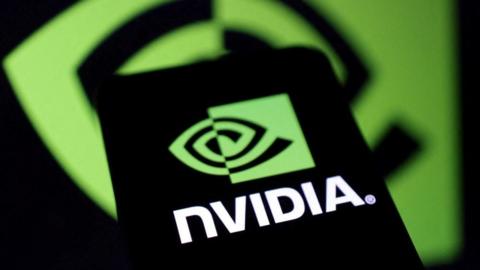Changes in global trade policies also loomed large in the company's forecast.
New export controls and tariffs have increased the complexity and cost of its supply chain, and may continue to do so, the company said.
Nvidia said it planned to increase manufacturing in the United States to help tackle the issue.
Last week, Mr Huang criticised the US rules blocking exports of advanced computing chips to China.
The controls were put in place following concerns that chip technology with potential military uses could be deployed by companies loyal to China's communist party.
Mr Huang blasted the policies as a "failure" and said they were backfiring against American companies.
Meanwhile, the Financial Times reported Wednesday that President Trump was ordering US chip software suppliers to stop selling their products to Chinese chip companies.
The move is intended to make it more difficult for China to develop its own advanced chips that would compete with Nvidia's, the paper said.
"The China export restrictions underscore the immediate pressure from geopolitical headwinds," according to Emarketer analyst Jacob Bourne.
Sustaining its dominant position would require Nvidia to navigate "an increasingly complex landscape of geopolitical, competitive, and economic challenges," he added.
At the same time, Nvidia has benefitted from the emergence of new buyers among governments in the Gulf states.
Earlier this month, Mr Huang travelled with President Trump to the Middle East where the company said it would sell hundreds of thousands of its AI chips in Saudi Arabia.
"Countries around the world are recognizing AI as essential infrastructure — just like electricity and the internet — and Nvidia stands at the center of this profound transformation," Mr Huang wrote after the earnings announcement.
Sales in Nvidia's key data centre business grew 73% on an annual basis.
Additional reporting by Liv McMahon
